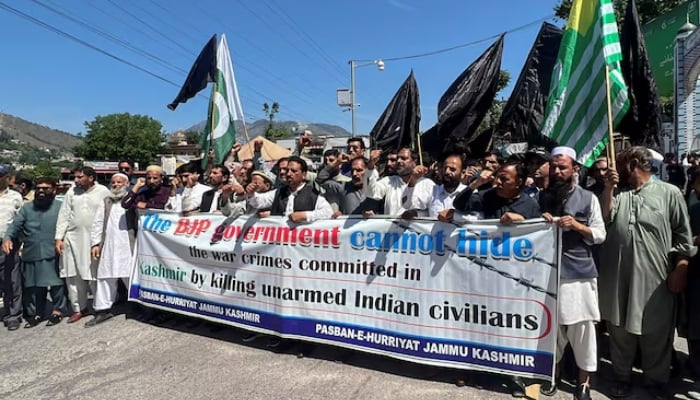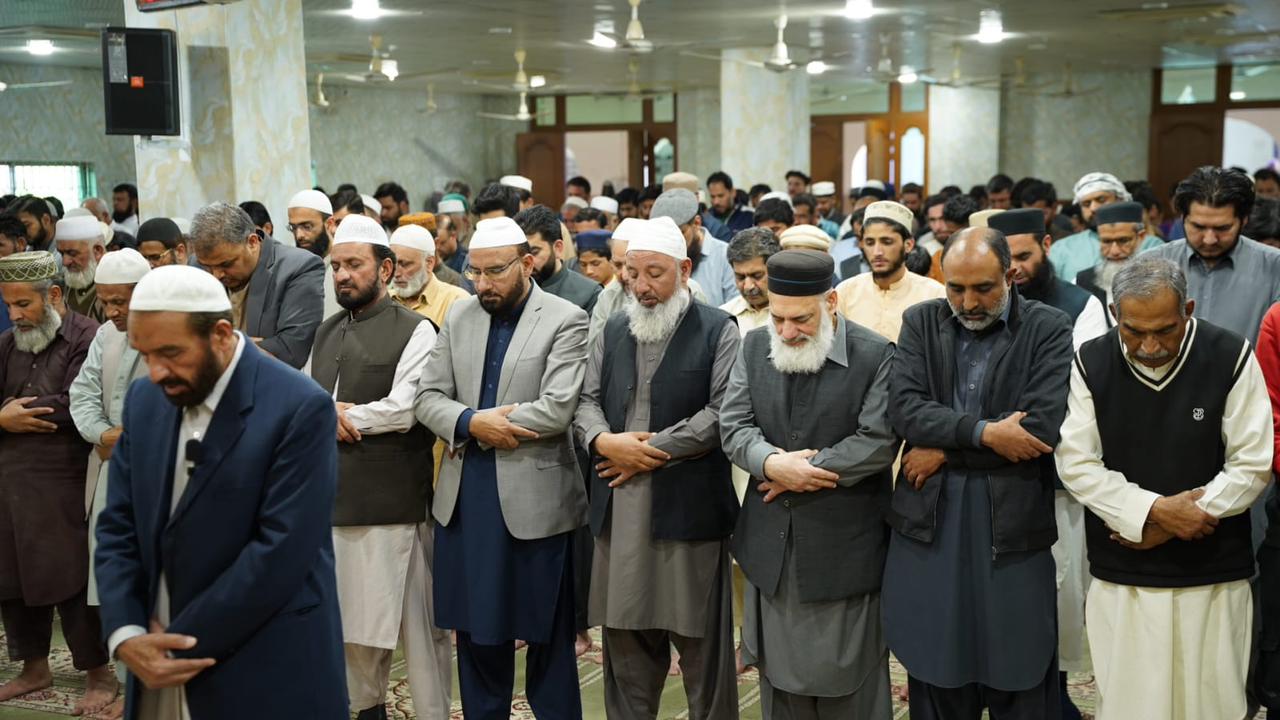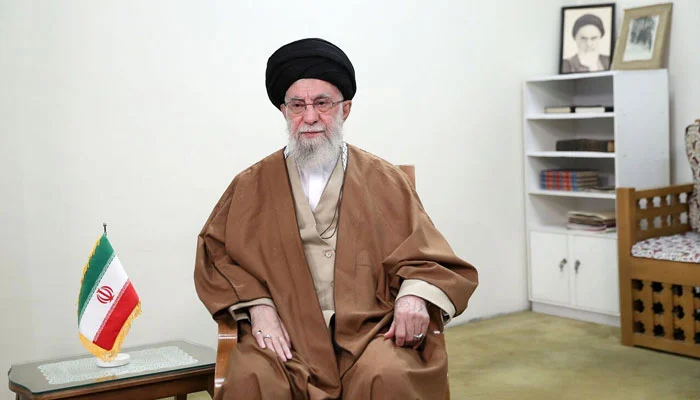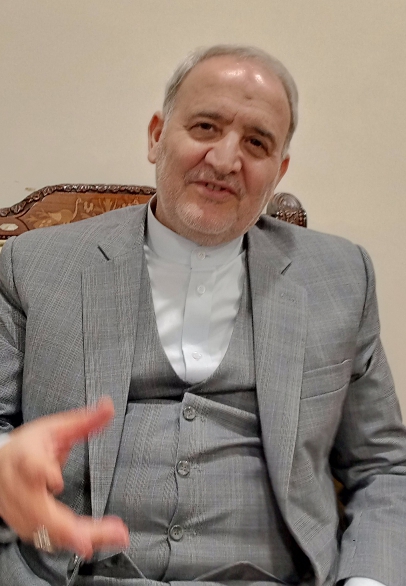The unfortunate and gruesome terrorism incident at Pahalgam, followed by India’s knee-jerk reaction — without any investigation or evidence — could be used as an opportunity to reduce polarisation.
However, so far, the Pakistani regime has not been proactive in reaching out to the political parties that today represent the true voice of the Pakistani people. Without such measures, the inherent ability of the nation to unite and speak out as one voice against Indian propaganda will be wasted — even though the Pakistan Tehreek-e-Insaf (PTI) and its founding chairman Imran Khan have been unequivocal in condemning and highlighting the false accusations of Indian Prime Minister Narendra Modi’s regime and the war hysteria that it periodically creates.
Measures announced by the Modi government left Islamabad no choice, and it was compelled to respond with tit-for-tat measures. Rising tensions and the jingoistic rhetoric of the Indian media prompted the UN secretary-general to ask both India and Pakistan to exercise restraint and de-escalate. Alarmed by the deteriorating situation, Saudi Arabia and Iran have offered to mediate.
Mediation must be welcomed. A war between two nuclear neighbours will not only be mutually destructive, but will also be suicidal. Statements from some Indian and Pakistani ministers have been highly irresponsible and have vitiated the climate further. With the international community preoccupied with Ukraine and the Middle East crises, plus the consequences of the tariff war, and with no dialogue mechanism between Indian and Pakistan in place, a neutral international probe into the Pahalgam tragedy is the only correct way forward.
The response of the mandate-less and forcibly installed government in Pakistan has been lacking on many fronts. Ministers and government spokesmen not adept at diplomacy have been weak, confused and in a few instances self-indicting. The contrast with the Pakistani response during the 2019 Pulwama crisis is both stark and instructive.
Our responses, under the leadership of Imran, were united, bold and calculated. It was this very approach that exposed Indian propaganda, and the situation quickly turned against India on all international fronts. This highly effective diplomatic and military response kept Indian designs at bay for a considerable time and deterred them from any trigger-happy adventure this time as well.
The greater part of my political career has been focused on diplomacy, and I am the longest-serving foreign minister of Pakistan. It pains me to see the diplomatic atrophy replacing the professional and proactive diplomatic outreach that was Pakistan’s hallmark until recently.
The international arena in the modern world is no longer insulated from the domestic circumstances of any jurisdiction. On this count too, all is not well.
The International Monetary Fund (IMF) has acknowledged stabilisation in our macroeconomic indicators, but at the same time, revised Pakistan’s growth down to 2.6% this year. Local experts even dispute this paltry number.
According to the World Bank, 42% of Pakistan’s population is living beneath the poverty line, and this year, 1.9 million additional people will fall beneath the poverty line. Pakistan has to grow by 6-8% every year to cut poverty and create 2-3 million jobs annually. With a youth bulge of 66%, unemployment is a serious concern. The 29% tariff imposed on our exports to the US has added new uncertainty.
Despite declining inflation and interest rates, we have not seen investment pick up. With India beating the drums of war, foreign investment seems unlikely in the immediate future. In fact, Pakistani investors themselves are leaving for opportunities in Dubai, Turkiye, Malaysia and other attractive destinations. Needless to say, without political stability, economic stability will remain a dream.
In this complex and fluid situation, the controversy surrounding the canal project and the new mineral bill has added fuel to the fire. Opposition parties in Sindh, civil society organisations and bar associations have forced the Pakistan Peoples Party (PPP) to revisit its earlier nod of approval for the project.
Assurances of the prime minister and speeches by PPP Chairman Bilawal Bhutto Zardari will not satisfy the opponents of the project, till the categorical notification of withdrawal from the Council of Common Interests (CCI).
Economic growth in the short run, can only come from the agriculture sector, with water and not land being its main constraint. However, water availability in the system has not been optimally utilised. India has further complicated the situation by its unilateral decision to hold the Indus Waters Treaty (IWT) in abeyance.
There are bright prospects of investment in the mineral sector, but the insurgency in Balochistan remains a huge impediment. The mineral bill passed in the Balochistan Assembly has been rejected by the Jamiat Ulema-e-Islam-Fazl (JUI-F), and the party has decided to issue show cause notices to its members who voted in favour of the bill.
Meanwhile, all opposition parties in the KP Assembly have rejected the proposed mineral bill, and many legislators of the PTI have expressed their reservations and resolved not to vote for the bill till they have authorisation from the party’s incarcerated founding chairman, Imran. The federal government has mishandled the canals project and the mineral bill.
Keeping the internal and external challenges in view, Pakistan has to put its house in order immediately.
With Pakistan being surrounded by external and internal challenges, the country must tread the difficult but necessary path of creating an atmosphere of unity. The multipolar crises that engulf us today are unprecedented in scale. No single stakeholder should attempt to navigate these waters alone without building a broad-based consensus. History is replete with examples of such failed endeavours. This time, we might not have the luxury of second chances or time.
The urgent need is to call an all-party conference (APC) as the current parliament lacks legitimacy and is non-functional. The most popular federal party and its leader, Imran, need to be included in any discussion to create a sustainable solution that has the buy-in of the people of Pakistan.
Sanity must prevail and a clear message sent across that we are capable of handling the challenge. The PTI’s decision to stand united against any Indian misadventure and the unanimous resolution passed by the Senate of Pakistan are steps in the right direction. Whilst Indian arrogance has united the Pakistani nation, it is waiting to see whether the civil/military leadership has the farsightedness to build on it. Our people need to be reassured that Pakistan comes first. Political stability and legitimacy is the need of the hour. Will sanity prevail or will we drown under the weight of our egos?
Pakistan zindabad!
( Thanks for Geo tv)
Disclaimer: The viewpoints expressed in this piece are the writer’s own and don’t necessarily reflect timelessnews’s editorial policy.




